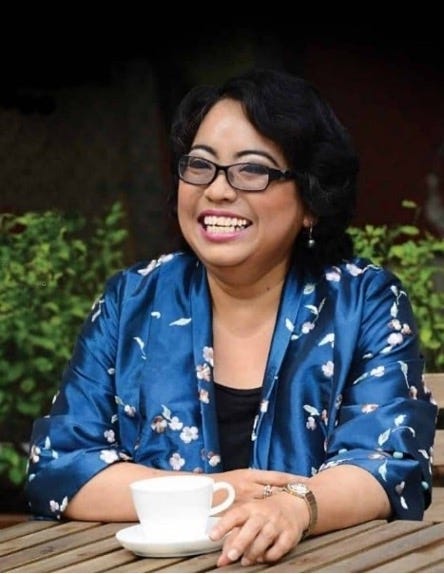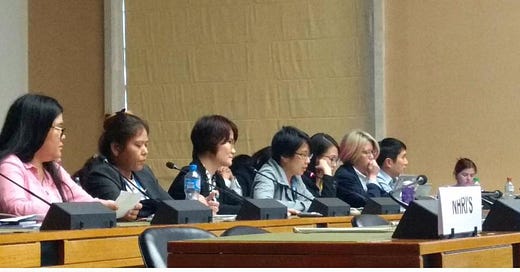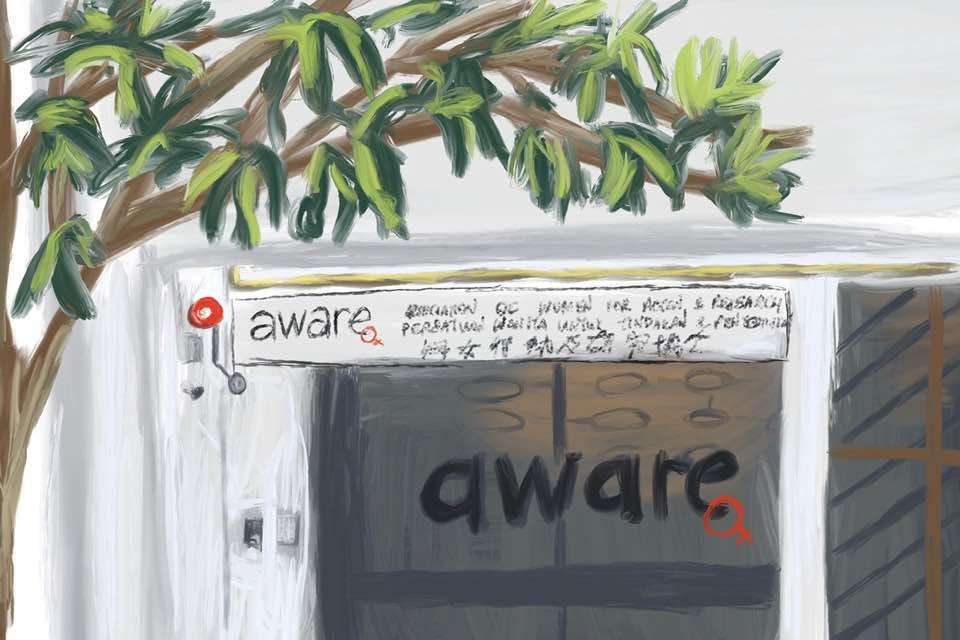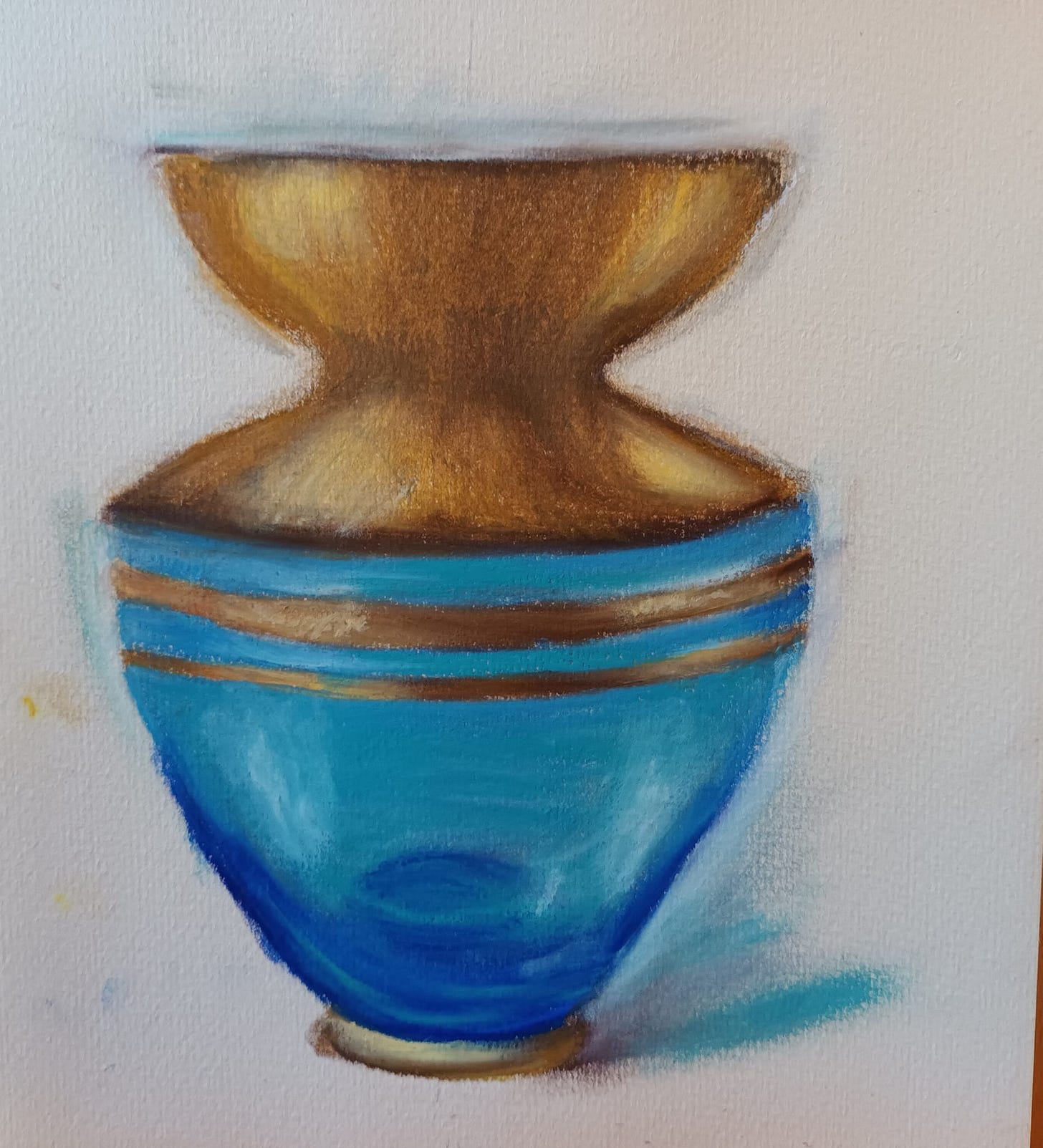A belated tribute to Malathi Das
An untold story of the courage and integrity of the Chair of 2017’s ‘Many Voices, One Movement’ coalition.
In writing this, I am expressing my personal recollections and opinions only. This piece does not reflect the positions or opinions of Aware or anyone else.
This is the story of my brief collaboration with Malathi Das, a woman who did her job.
Please understand that I intend this description as high praise.
Malathi and I started working together in 2016. I was employed at Aware, a feminist advocacy group in Singapore, and I had just been assigned oversight of our participation in an NGO coalition. The coalition was to prepare a joint report on Singapore’s progress under CEDAW, the global women’s rights treaty.
Singapore ratified CEDAW in 1995, agreeing to have its progress regularly assessed by a United Nations committee of Experts. The government submits reports to the Experts every few years; NGOs are invited to supplement with further independent information. In 2011, it got a little disorganised among the Singapore NGOs, and the UN Experts urged them to collaborate on a joint report next time.
So in 2016, I joined a meeting called by the Singapore Council of Women’s Organisations (SCWO), a loose umbrella body of NGOs. SCWO was assembling a coalition, hoping to pull in their 60 or so member groups, and reaching out to others like Sayoni (a queer women’s group) and TWC2 (a migrants’ rights group). The SCWO representative chairing this process was family lawyer Malathi Das.

I’d met Malathi only once or twice before. I viewed her with some doubt, and it wouldn’t surprise me if the feeling was mutual. We’d both been in Geneva for the 2016 UN UPR (another human rights process), and I’d found her NGO speech unsatisfyingly short on direct criticism of state practices. She also seemed comfortably ensconced with the Singapore state delegation, which confers a kind of legitimacy domestically, but looks odd for NGOs in an international human rights context.
I had similar misgivings about the possible coalition. I didn’t want Aware to pull its punches when describing the situation in Singapore. I worried that some groups might water down critiques and recommendations, or veto references to politically sensitive topics such as LGBT rights or migrants’ rights. It was my first time at one of these meetings, and I didn’t know the temperature of the room.
I decided to frontload the awkwardness, rather than put it off. When the subject came up of dividing the report into a main section (all groups would endorse this) and annexes (endorsed by selected groups only), I voiced my doubts with something along the lines of:
“Look, we need to decide if there are things which anyone wants to see excluded from the report. I’m raising this because ____ from Sayoni is here—” (she might even have been right next to me) “—and if there are groups who can’t accept LGBT concerns in the main report, we should talk about that now, so that we don’t waste Sayoni’s time by having them go through meetings for months just to end up with everything relevant to them taken out.”
Nobody volunteered any concerns in response to this invitation. I was cautiously relieved.
I had a brief exchange with Malathi later that day. I can’t remember what it was about, but I remember us eyeing each other carefully, recognising we’d have to work together. It was a start.
Months passed in work. Prior to my involvement, the meetings had generated a ragbag of proto-drafts – unstandardised bits and pieces of analysis around various themes. Aware now offered resources (mainly me, plus my team members) to organise this into a coherent document. But it was explicitly not Aware’s report: we worked under a cross-organisational editorial committee, chaired by Malathi and made of senior members of some particularly active groups.
Once we’d battered the draft into a state fit for wider circulation, it went to all potential coalition members – 60ish SCWO members plus miscellaneous others – for feedback. I believe this first happened in February 2017, but I’m absolutely certain it was no later than May. We expected to submit a final version in September, so we were making reasonable time either way.
Several rounds of review, editing and recirculation followed. Almost all the comments were small-scale stuff, straightforwardly resolved. The most significant, on Muslim family law, generated discussion over the course of a few drafts and meetings. After a while – still far in advance of the final report – one group declared that they would not endorse the report, as the reforms advocated in this area were too bold. But this group stayed engaged with the process to the end, and they agreed that it had all been transparent. (We later discovered that in proposing two options on polygamy – prohibition, or requiring a first wife’s consent – the report would likely be considered insufficiently strong by CEDAW standards, which call for prohibition with no ifs or buts.)
The sections on LGBT rights were in these drafts and available to everyone from the start. Among other things, they called for an end to 377A and the media censorship of LGBT experiences. They never generated any controversy, even as I continued to highlight their existence in meetings, just in case. All the actively participating groups were chill about it.
At last we had the final 10,000 words of analysis and recommendations. As September 2017 came around, the editorial committee and SCWO machinery swung into action to gather endorsements from SCWO members and the allied groups.
We mishandled this at first. The SCWO leadership told member groups that unless they opted out, they would be named as signatories. My boss at Aware, Corinna, thought it ought to be an opt-in process instead. I had mixed feelings, but I wasn’t in the driving seat and I ultimately saw this as a matter for SCWO’s judgment: I did not know much about their relationships with most of their members. In hindsight, I should have proactively pushed Corinna’s concerns, but at the time I saw my role as primarily technical – I was there to build and polish the substantive report – and I regarded this bit as something for other people to sort out.
In any case, a few days later, the SCWO leadership contacted everyone again to say that they’d changed their minds. It was now to be an opt-in process. Only groups that actively volunteered for it would be included. This seemed straightforward; there’d been a mistake and it was now corrected. A good number of endorsements still rolled in, as well as some praise. We announced a press conference for the end of September. So far so good.
I’m going to be careful and limited with what I say next, because I don’t have direct or documentary proof of many aspects of this. I accept that it is all rather weak if you doubt my honesty, but there’s nothing much I can do about that. I can only relate my own experiences truthfully.
The press conference was scheduled for Friday morning. On Thursday night, while at an evening class, I started getting messages on my phone from an NGO contact. I remember pacing the car park of the language school while speaking to her on the phone, confused by what I was hearing. According to her, two Cabinet members had met that night with representatives of a few potential coalition members. I believe they were groups who had opted out during the original ‘opt-out’ approach.
Over the course of that evening and the next morning, there was a flurry of communication between the editorial committee and the SCWO leadership. I was told that there had been communication between a government ministry and SCWO in this period. I cannot attest to the terms of that communication; I can only tell you that literally overnight, SCWO went from ownership and coordination of the coalition process to withdrawing from the coalition entirely, and cancelling the press conference that was scheduled for that very morning.
As I was slated to speak myself, and also handled media relations at Aware, I started getting inquiries from journalists about why the presser was off and why groups had “pulled out”.

The editorial committee met at SCWO that day, to discuss how best to answer queries without mentioning any ministers or ministries. I won’t waste your time with explanations of why ministers and ministries were redacted. If you know anything about Singapore, you will understand that almost everyone in the room simply treated them as unmentionable. You will not find it surprising that when one individual suggested that describing any ministerial involvement was the simplest factual answer to the media’s questions, this had close to zero traction with the others. You will also realise why we had little hope that any groups present at any late night meeting would publicly corroborate that such a thing had taken place. You can see for yourself the reporting that resulted. It was a wretched day and I swear some of my hairs turned grey.
Once SCWO pulled out, others followed, penguins falling off a floe. At least one person who’d recently praised the report now scolded the editorial committee for our moral failings.
I was heartsick that weekend, and social media rubbed salt in the wound. People who had just abandoned – and in some cases rubbished – a coalition working for women’s rights now posted pictures of themselves at the Istana, celebrating the supposed feminist triumph of Halimah Yacob taking presidential office.
This is the moment when Malathi Das shone, and this is why I write of her now with gratitude and admiration.
Malathi had been overseeing the whole coalition process on SCWO’s behalf. It was open to her now to abandon the report and distance herself from those of us who remained committed to it. Some people were already circulating a narrative in which Aware had snuck in controversial content in an underhanded way. It was clear which way the winds of favour were blowing.
But seeking favour wasn’t her job, you see. And Malathi did her job.
Malathi’s role remained as it had been from the start – to facilitate fair and transparent deliberation among NGOs, leading to a report consolidating their views on Singapore’s progress toward CEDAW standards. Malathi knew the truth: that she had overseen an honest, open and collaborative process for well over a year, and that the fruits of this process deserved solidarity and support. She remained Chair of the coalition, leading and speaking for it publicly, and steering the continuing work as we submitted the report to the Experts and represented its contents in Geneva.
In the end, Malathi didn’t just do her job; she delivered to a superb standard. There wasn’t the 60-odd member coalition she probably originally hoped for, or even the 30-plus group that seemed quite possible at one point. But a 13-member coalition was a landmark. Nothing like this had ever been achieved among Singapore’s women’s NGOs, and it was under her leadership that it had come together. And in terms of influencing the final content of the Experts’ recommendations to the Singapore state, it was hugely successful.
We worked together intensely in this period, but I didn’t see much of Malathi afterward. Everybody needed some time to recover after the CEDAW review, and I left Aware shortly afterward to focus on other projects. We met socially at least once after, and ended the work of the coalition on positive terms, but the burst of constant contact came to an end.
Last April, Malathi passed away, at the age of 53. It was extremely sad news. It also struck me as unfair that her steadfastness and courage in 2017 had gone so entirely unrecognised during her life. I promised myself that I would tell the story of these events properly one day. Now, with the next CEDAW review session coming up and Halimah Yacob’s presidential term ending, I’ve decided not to put it off any more. As I started writing this, I came across other tributes to Malathi that spoke of her service and achievements, but I noticed they didn’t mention her great accomplishment and integrity in chairing the ‘Many Voices, One Movement’ coalition. I hope to add to the picture of the life of a remarkable woman – a woman who did her job.
In writing this, I am expressing my own recollections and opinions only. This piece does not reflect the positions or opinions of Aware or anyone else.






